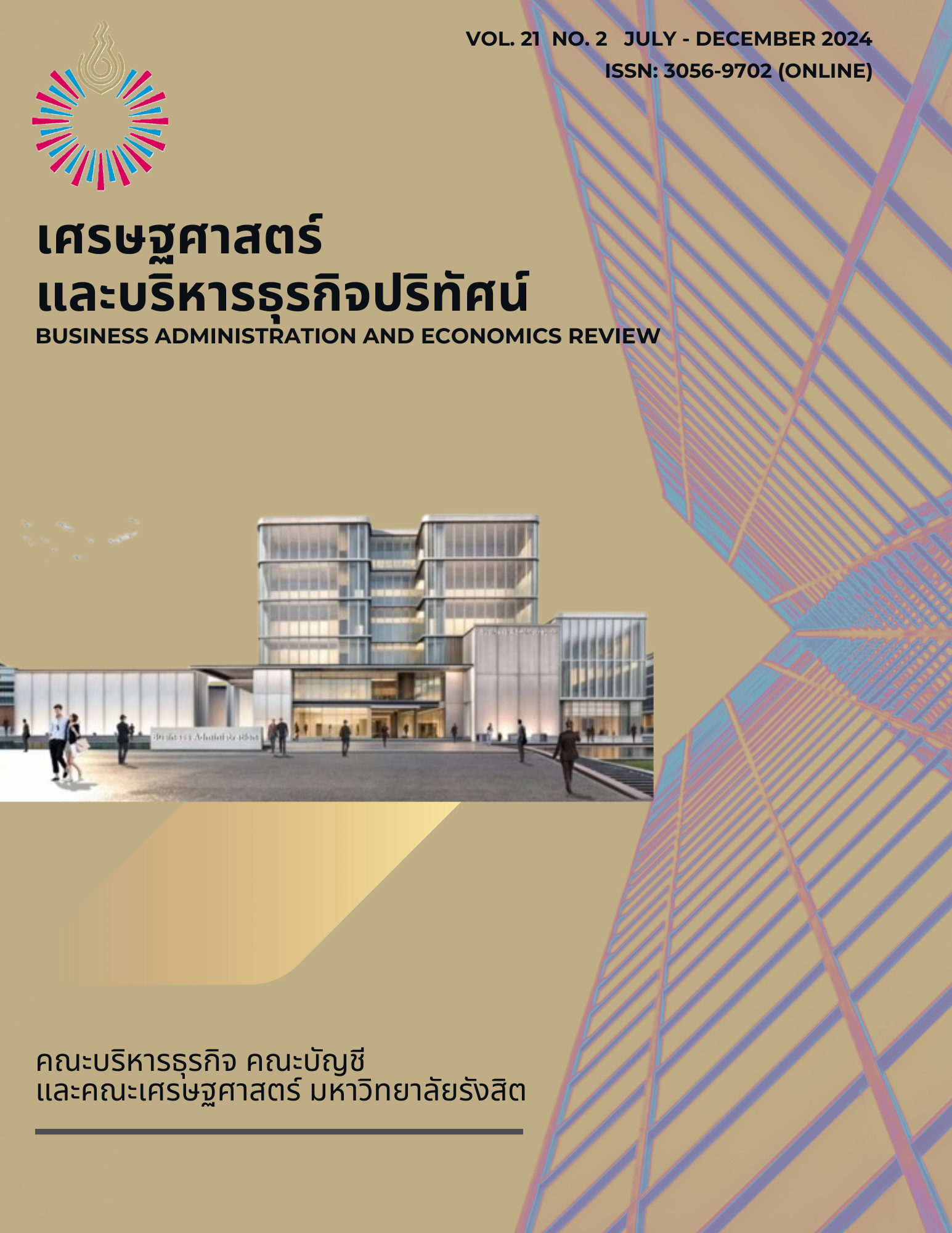The marketing mix factors for online shopping via the 7-Eleven delivery application of CP All Public Company Limited under the new normal lifestyle in Thailand.
Keywords:
Marketing Mix, Online Shopping, Modern Trade, New NormalAbstract
Abstract
The research aims to study: 1) the general information of consumers, 2) the level of opinions on the marketing mix, and 3) the factors affecting the marketing mix in online shopping through the 7-Eleven delivery application under the new normal lifestyle. A survey research methodology was employed, collecting data from a sample of 400 consumers using a questionnaire. The data was analyzed using descriptive statistics, Independent T-Test, and One Way ANOVA.
The research findings revealed that: 1) the majority of consumers are female, aged between 21 and 29 years, with a bachelor's degree, and have an income ranging from 10,001 to 20,000 Baht; 2) consumers' overall opinions on the marketing mix were at a high level (𝑥̅=4.07); and 3) personal factors that affect the marketing mix indicated that gender affects the marketing mix in terms of product, distribution channels, and promotion. Age impacts the marketing mix concerning product, promotion, personal factors, and physical attributes. Educational level affects the marketing mix in terms of product, price, promotion, personal factors, physical attributes, and processes. Income significantly impacts the marketing mix in terms of distribution and personal factors at the 0.05 level of significance.
References
Araya Ong-iam and Phongtara Wijitpaisarn. (2018). Checking the quality of research tools. Journal of Anesthesiology. 44(1), 36-42.
Bank of Thailand. (2019). World economy, Thai economy after COVID-19: World revolutionary disease. Overhaul to the future, new way of life. Source: https://www.bot.or.th/th/research-and-publications/articles-and-publications/bot-magazine/256303_CoverStory.html. 15 May 2023.
Bunchom Srisa-at. (2010). Preliminary research. (8th edition). Bangkok: Suviriyasan.
Cochran, W.G. (1997). Sampling Techniques. New Jersey: John Wiley & Sons.
Electronic Transactions Development Agency. (2021). ETDA reveals the value of Thai e-commerce in 2020. Source: https://www.etda.or.th/th/pr-news/ETDA-Reveals-the-Value-of-e-Commerce-in-2021. 15 May 2023.
Kotler, P. (2000). Marketing management (The millennium ed). New Jersey: Prentice Hall International.
Philip Kotler. (1997) . Marketing Management : analysis, planning, implementation, and control. (9th ed). New Jersey: A Simon & Schuster company.
Premkamon Hongyon. (2019). Factors influencing the decision to purchase products through online applications (Lazada) of consumers in the digital age in Bangkok. Independent study, Master of Business Administration program, Siam University.
Pruejit Suwansaeng. (2020). Consumer product ordering behavior affects factors in the online marketing mix through the Shopee platform. In the households of consumers during COVID-19 in Bangkok. Master of Business Administration Thesis: Ramkhamhaeng University.
Schiffman, L. G., & Kanuk, L. L. (1994). Consumers behavior (5th ed). Englewood Cliffs, NJ: Prentice-Hall.
Sirichai Kanchanawasi. (2001). Traditional testing theory. 4th printing. Bangkok: Chulalongkorn University Press.
Thitirat Meemak, Kirana Kaewsun, and Ratikorn Bunsawat. (2021). Factors affecting the decision to purchase products through the online system during Covid–19. of personnel at Suvarnabhumi Institute of Technology. Academic journal Suvarnabhumi Institute of Technology. 7(2). 336-352.

Downloads
Published
How to Cite
Issue
Section
License
Copyright (c) 2024 Business Administration and Economics Review

This work is licensed under a Creative Commons Attribution-NonCommercial-NoDerivatives 4.0 International License.
The contents in Business Administration and Economics Review can be used for publication. But do not modify, modify or use it for trade and profit.

